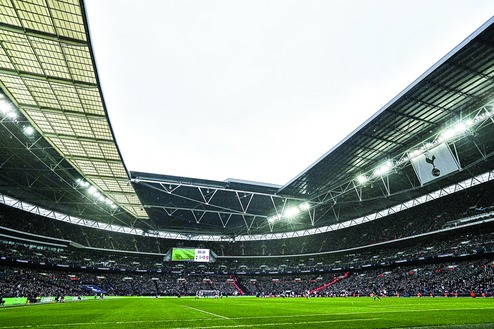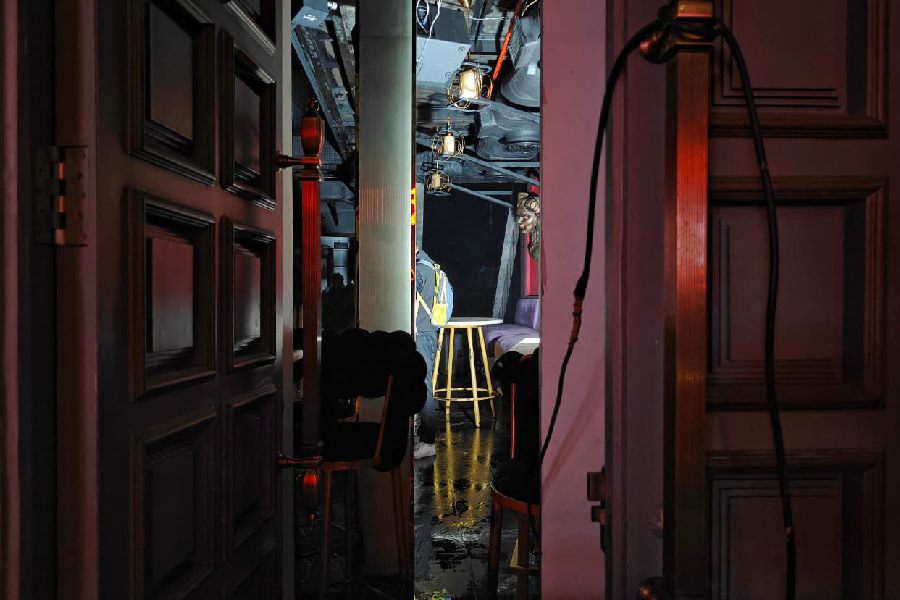
London: Shahid Khan, a 67-year-old US-based Pakistani tycoon has made an offer, valued at between £500 million and £1 billion, to buy Wembley Stadium, the "iconic home of English football", it was confirmed on Thursday.
Khan, who sports a luxuriant moustache that would not disgrace a Pakistani general, has promised to be a good citizen and said that "should we be fortunate to close on the purchase... the spirit and essence of Wembley would be unchanged".
The flamboyant entrepreneur added: "Always know Wembley would be home to the England national teams, and that we would strive every day of the year to be the best possible steward for a venue that is iconic and beloved here and throughout the world."
The Football Association, which owns Wembley, which was rebuilt at a cost of £757 million and reopened in 2007 to seat 90,000 - it was memorably the venue for Narendra Modi's diaspora meeting in 2015 - would only say: "We can confirm that the FA has received an offer to buy Wembley Stadium."
The news has come as an unpleasant shock to sections of the British public opinion.
Rodney Marsh, who once played for QPR, tweeted his opposition: "Mark this date. If Wembley is sold it will no longer be Wembley Stadium. It will become The Google Sports Arena."
It so happens that Wembley is located in a part of London with a huge Indian-origin population.
Local MP and shadow international trade secretary Barry Gardiner was equally hostile to the bid: "Let's not see our National Football Stadium traded away in a backroom deal. Wembley Stadium is not just at the heart of our borough of Brent, it's at the heart of Britain."
Other critics questioned how much the new owner might charge the FA for England to play at his ground, while others joked the stadium might soon be named after US firms Budweiser or Taco Bell.
Khan, who was born in Lahore in 1950, the son of Zakia, a professor of mathematics, and Rafiq, who sold surveying equipment, moved to America at the age of 16, and once washed dishes for $1.20 an hour to make ends meet. But today, when he is said to be worth $8.7 billion, he owns an NFL team, the Jacksonville Jaguars, whose activities he is keen to consolidate in the UK.
He has also said his ownership in Britain of Fulham Football Club, which he bought in 2013 for a reported £150 million from Mohamed Al Fayed, the Egyptian who also once owned Harrods in Knightsbridge, will not be adversely affected by his purchase of Wembley.
It is rather like an elderly husband taking on a trophy wife of 21, while assuring Bibi No 1 of advancing years that his passion for her will remain undiminished. As for buying Wembley, which is as English as fish & chips, it is not unlike, say, Subrata Roy or Vijay Mallya declaring all will remain as before if they bought Lord's, the home of English cricket.
To be fair to Khan, he has reassured Fulham supporters: "No matter what the outcome of our offer may be, I want to emphatically state to you that none of this will have any effect on my commitment to your club."
But behind the scenes, there are indications an outline deal has been agreed between Khan, who likes to keep his 312 foot superyacht worth £140 million named Kismet and one of his three private jets on standby in London, and Martin Glenn, CEO of the FA.
For one thing, the FA would be relieved to get rid of outstanding debts of £142 million and concentrating more on talent hunting - England has not won the world cup since 1966 (and that was at Wembley under Bobby Moore whose statue graces the entrance to the stadium).
The sale cannot be straightforward because a great deal of public money went into rebuilding Wembley - for example, £120 million from the National Lottery, £120 million from Sport England, £20 million from the Department for Digital, Culture, Media and Sport and £21 million from the London Development Agency. They will all want their money back.











